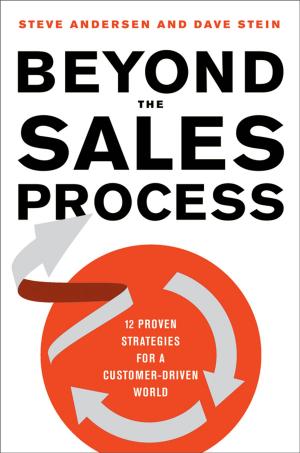Brain Sense
The Science of the Senses and How We Process the World Around Us
Nonfiction, Science & Nature, Science, Biological Sciences, Biology| Author: | Faith Hickman Brynie | ISBN: | 9780814413265 |
| Publisher: | AMACOM | Publication: | September 28, 2009 |
| Imprint: | AMACOM | Language: | English |
| Author: | Faith Hickman Brynie |
| ISBN: | 9780814413265 |
| Publisher: | AMACOM |
| Publication: | September 28, 2009 |
| Imprint: | AMACOM |
| Language: | English |
Complex and crucially important, the senses collect the massive amount of information we need to navigate daily life, and serve as a filter between our inner selves and the larger world. But the science of how the senses work has been little understood—until now. New research is rapidly uncovering fascinating insights into how the brain processes sensory information. It’s not simply a matter of the brain controlling the senses; the senses actually stimulate brain development. For example, the brain’s sound-processing centers mature properly only when sound impulses trigger them to do so—which is why cochlear implants are best used before the age of three. Brain Sense reveals this and a wealth of findings on how the brain and senses interact, as it examines each of the five major senses: touch, smell, taste, vision, and hearing. With eloquent writing and gripping stories, the author deploys a rare gift for explaining complex scientific ideas in a way that is clear and comprehensible. She introduces the scientists at the forefront of “brain sense” studies—neurologists, brain mappers, biochemists, physicians, cognitive psychologists, and others—as well as real-life people who are contributing to the research and benefiting from its practical applications, such as haptic devices to assist people who have lost limbs or rehabilitative software for those who have suffered impairments to their motion vision. You’ll find new research that explains: • Why placebos work by changing the way the brain processes pain • How humans respond to pheromones in the same manner as other animals • How taste is highly influenced by expectations of taste • Why color significantly aids the ability to remember an object • How the capacity for language is already at work in newborn babies • What happens in the brain to produce sensory experiences such as déjà vu and phantom limb pain • And much more Expansive and enlightening, Brain Sense shows us that the brain is both flexible and variable, and the reality that we construct based on inputs gathered from the senses differs from person to person. It sheds a much-needed light on the elusive workings of the extraordinary human brain.
Complex and crucially important, the senses collect the massive amount of information we need to navigate daily life, and serve as a filter between our inner selves and the larger world. But the science of how the senses work has been little understood—until now. New research is rapidly uncovering fascinating insights into how the brain processes sensory information. It’s not simply a matter of the brain controlling the senses; the senses actually stimulate brain development. For example, the brain’s sound-processing centers mature properly only when sound impulses trigger them to do so—which is why cochlear implants are best used before the age of three. Brain Sense reveals this and a wealth of findings on how the brain and senses interact, as it examines each of the five major senses: touch, smell, taste, vision, and hearing. With eloquent writing and gripping stories, the author deploys a rare gift for explaining complex scientific ideas in a way that is clear and comprehensible. She introduces the scientists at the forefront of “brain sense” studies—neurologists, brain mappers, biochemists, physicians, cognitive psychologists, and others—as well as real-life people who are contributing to the research and benefiting from its practical applications, such as haptic devices to assist people who have lost limbs or rehabilitative software for those who have suffered impairments to their motion vision. You’ll find new research that explains: • Why placebos work by changing the way the brain processes pain • How humans respond to pheromones in the same manner as other animals • How taste is highly influenced by expectations of taste • Why color significantly aids the ability to remember an object • How the capacity for language is already at work in newborn babies • What happens in the brain to produce sensory experiences such as déjà vu and phantom limb pain • And much more Expansive and enlightening, Brain Sense shows us that the brain is both flexible and variable, and the reality that we construct based on inputs gathered from the senses differs from person to person. It sheds a much-needed light on the elusive workings of the extraordinary human brain.















